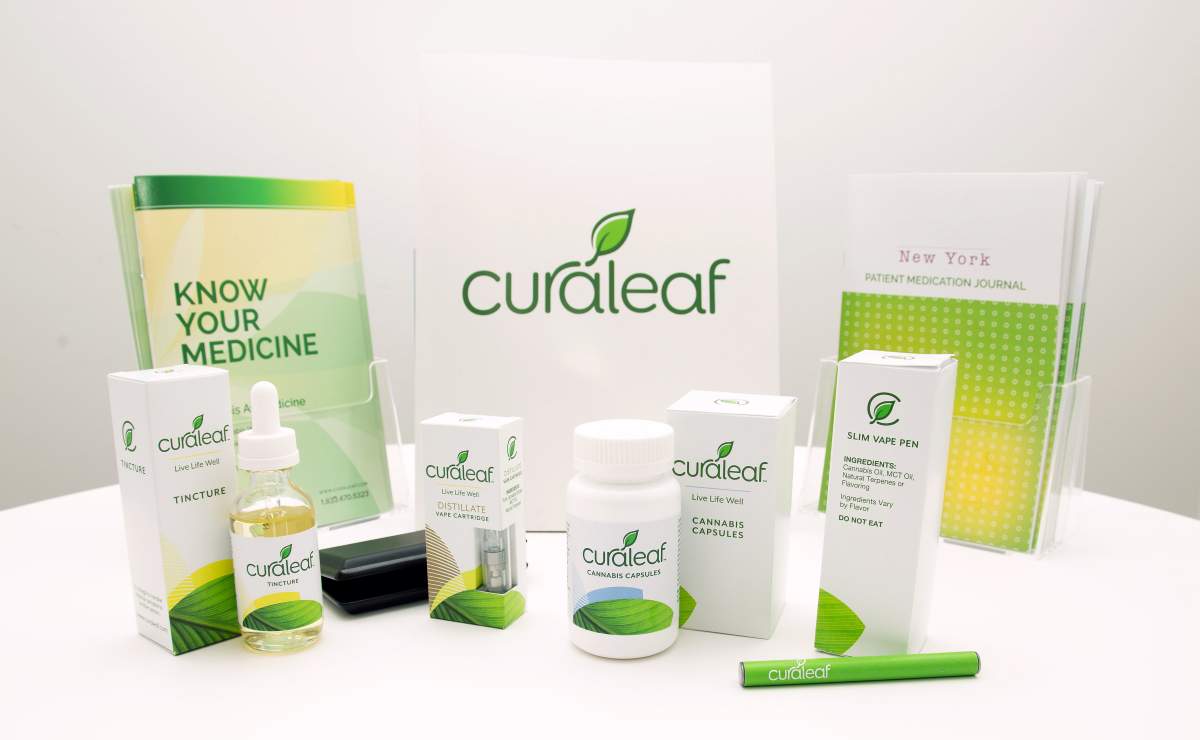Curaleaf is a must-own pot stock, this investor says

 In cannabis, it’s buy the best and forget the rest, according to Brian Madden of Goodreid Investment Counsel, who says Curaleaf (Curaleaf Stock Quote, Chart, News, Analysts, Financials CSE:CURA) will be a leader in the sector for a long time to come.
In cannabis, it’s buy the best and forget the rest, according to Brian Madden of Goodreid Investment Counsel, who says Curaleaf (Curaleaf Stock Quote, Chart, News, Analysts, Financials CSE:CURA) will be a leader in the sector for a long time to come.
“I think you have a very bifurcated industry in the cannabis sector,” said Madden, senior vice president at Goodreid, speaking on BNN Bloomberg on Thursday. “You have companies that are fundamentally sound like Curaleaf and then you have meme stocks which are the majority of the other ones. Not the big senior ones that garner the majority of the press, but there are still probably hundreds of junior cannabis companies out there that can go up or down 20 to 30 per cent of the day on nothing but sentiment.”
“We continue to own [Curaleaf]. We bought it around C$10 last summer and we’ve been pleased with how they’ve progressed in growing their business,” Madden said.
Headquartered in Wakefield, Mass, Curaleaf is a US multi-state operator with currently 106 dispensaries, 23 cultivation sites and over 30 processing sites over 23 states. The company saw its share price shoot up along with much of the cannabis sector over the second half of 2020 and into 2021. In CURA’s case, that took the stock from about C$4.00 per share in March to as high as C$22.80 by early February of this year.
The company has been performing well on a quarterly basis, hitting revenue of $626.6 million in 2020, up 184 per cent compared to 2019, and generating $144.1 million in adjusted EBITDA, which was up 456 per cent. (All figures in US dollars except where noted otherwise.)
Last month, Curaleaf released its first quarter 2021 numbers, which also produced records on the top and bottom lines, coming in with Q1 revenue up 170 per cent year-over-year to $230.3 million and adjusted EBITDA up 213 per cent to $62.6 million.
“The stronger than expected first quarter performance drove record adjusted EBITDA as well as approximately 640 basis points of improvement in gross margin year-over-year,” said CEO Joe Bayern in a May 10 press release.
“These impressive results reflect the leverage of the strategic investments we have made across the organization in cultivation, product innovation as well as expanding our branded retail and wholesale distribution channels,” Bayern said.
Curaleaf has also been branching out beyond US borders, acquiring in April Europe’s largest vertically integrated cannabis company, EMMAC Life Sciences for about $286 million. The company called the move transformational in that it makes CURA into a “truly international cannabis CPG company” and the US MSO with the largest footprint in the burgeoning legal cannabis trade in Europe.
Madden agrees with CURA’s expansion move.
“We like that strategy. Europe is going to be a large addressable market, but probably the regulatory evolution of that market is two or three years behind where the US is, so that bodes well for big growth,” Madden said.
“[Curaleaf] is growing revenue really, really quickly. They’re still not profitable and we think that there are some regulatory fixes coming down the pipeline, working to go through US Congress right now,” Madden said.
Madden said the issue is that because cannabis is still a Schedule 1 federally controlled substance, companies like Curaleaf cannot deduct expenses like rent and wages and are forced to pay high taxes.
“In some cases, [taxes] exceed 100 per cent of their taxable income which is pretty absurd and untenable in the long term,” Madden said.
The US has currently 38 states that have legalized marijuana for medicinal use and 15 plus the District of Columbia that have legalized adult recreational use. Movement on the federal level has been brewing for some time, with last December the Democrat-controlled House of Representatives passing a bill to decriminalize cannabis at the federal level, a first for the country. Recent states to legalize recreational use include Arizona, Montana and New Jersey.
Madden says Curaleaf’s product portfolio and geographic reach across the US should make it a strong contender for investors looking to get in on the cannabis space.
“We like the way this company is positioned. It’s vertically integrated, which means they grow the flower, they upgrade it into vapes and edibles and oils and other value-added formulations where you can build brand equity and create differentiation,” he said.
“Strategically, they have 100-plus dispensaries downstream where they can actually touch the customer and sell the product, so we think that vertical integration strategies is on point,” he said. “We also like the geographic footprint which they’re expanding selectively by opening new dispensaries.”
Madden said while other pot stocks are up and down depending on “which way the wind’s blowing,” CURA more follows the company’s fundamentals.
“We’re pretty convinced Curaleaf is going to be a long-term leader in the cannabis industry, which is going to be a very large industry in several years time and is growing really, really quickly, right here, right now,” Madden said. “So, we’re still owning it and we’re still buying it.”



